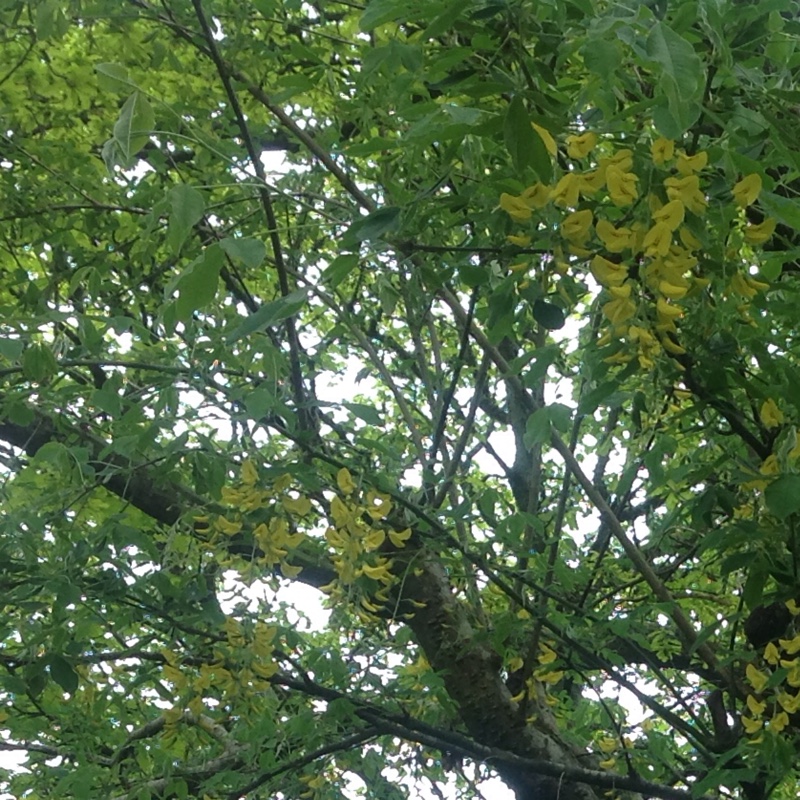
+ Laburnocytisus 'Adamii'
Adam's Laburnum
Spreading Deciduous tree, a graft hybrid, grown for its colourful, pea-like flowers borne in late spring and early summer. The leaves are alternate and 3-palmate. An ideal specimen tree, also effective planted in small groups. All parts are highly toxic if ingested. Flowers occur in 3 different colours, each borne in separate racemes, two are single colours yellow and purple, true to each parent; the third is purple-pink with a yellow flush.
Contributed by @bevkb
-
Full sun
-
Very little water
-
Full Frost Hardy: 5F (-15°C)
-
Moist and free draining
Common name
Adam's Laburnum
Latin name
+ Laburnocytisus 'Adamii'
type
Tree
family
Fabaceae
ph
5.5 - 8.0 Acid - Neutral
Plant & bloom calendar
-
Best time to plant
-
When the plant will bloom
full grown dimensions
 6.00 M
8.00 M
6.00 M
8.00 M
+ Laburnocytisus 'Adamii'
Spreading Deciduous tree, a graft hybrid, grown for its colourful, pea-like flowers borne in late spring and early summer. The leaves are alternate and 3-palmate. An ideal specimen tree, also effective planted in small groups. All parts are highly toxic if ingested. Flowers occur in 3 different colours, each borne in separate racemes, two are single colours yellow and purple, true to each parent; the third is purple-pink with a yellow flush.
Flowers
From Early Spring TO Late Spring
Flowers of different colours - yellow, purple and dull pink - appear in Spring
Planting
From Early Spring TO Late Spring
Plant in a sunny position in fertile, moist, well-drained soil
Propagating by grafting
From Early Spring TO Early Spring
Grafting is not easy for the amateur gardener. It is usually done in early Spring, (before the sap rises) but can also be done in Autumn. Grafting of this tree should be onto laburnum seedling. Scion-wood should be from healthy 1-2 yr.old wood, ideally about the thickness of a pencil. Cut the scion just above a bud into 6"-10" lengths, and cut the rootstock down to about 3". Make a downward nick about 1¼" below the top of the rootstock, then, starting at the top of the rootstock, make a downward sloping cut to meet the first cut, and remove the resulting slither of wood. Make a cut the same length along one side of the scion wood, and a short angled cut at the base. Fit the base of the scion wood into the rootstock so that the green layers just under the bark meet, preferably so that they touch on both sides of the stem. If the cuts have been made straight, they should fit snugly. Now wrap the graft with grafting tape, polythene strips or raffia and any exposed cut surfaces, and paint with grafting wax. Place in a propagator or greenhouse. Mist regularly, but don't over-water. The graft should start to show new growth in 6 - 8 weeks










